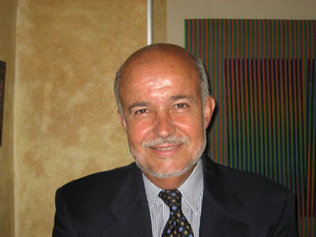Shedding Our Pain, Fears to Reconsider U.S. Policy toward Cuba
BY JOSE MANUEL PALLI
Jpalli@wwti.net
The Miami Herald
Saturday, April 6, 2013
The Cuban Research Institute at Florida International University recently held a conference on how Cubans have spread all around the world bringing the island's culture, wit and flavors to each and every place they settle in.
Yoani Sánchez, the Cuban blogger whose keen perception of Cuban reality has earned her international recognition, also pointed this out in one of her blog's entries, writing about the many Cubas she found during her world tour, in Rio, in Prague, in New York City and in Miami—arguably the mecca of the Cuban diaspora.
One of the panelists at FIU's instructive and enlightening conference about Cubans in other parts of the world, speaking about Cubans in Spain, made comments that suggest not many of those Cubans living abroad spend any time praying towards our mecca: they rather reject and resent the nature of what we call U.S.-Cuba policy and what they see as Cuban-American "exile nationalism."
When I asked the panelist what she meant by "exile nationalism" and why, she claimed the United States had a national policy aimed at Cuba, and Spain did not, she pointed to the role the Cuban issue plays in American national elections. I believe this perception—even if accurate—hurts all Cubans more than we may realize it does. We in Miami urgently need to realize that the Cuban diaspora is more than just in this country, and act accordingly.
Back in 1959, if you had to choose the two countries with the strongest ties to Cuba—historical, cultural and emotional ties—Spain and the United States would have been the likely choices (there was little talk of a Cuba-Zuela or Vene-Cuba back then). The fact the many Cubans presently living in Spain do not reside in any particular enclave (nor do they appear to have an enclave mentality) has helped the Spaniards preserve what is an authentic national policy toward Cuba, one anchored in those very strong ties that not even successive governments of very different political persuasions can destroy.
Spain, whether run by socialists or conservatives, has always remained open to Cuba, eagerly pursuing contacts with the island. Some of us in Miami may see this as a betrayal, but all indications are that this policy has the backing of a large majority of the people in Spain, if for no other reason that it reflects those very strong ties between the two nations: it is a truly "national" policy in that sense.
American "national policy" towards Cuba—as the panelist called it—lacks this truly national foundation. It is the result of our own segment of the Cuban diaspora (the largest by far) concentrating in a couple of enclaves, making those enclaves a critical factor for the aspirations of any politician running for national office.
What's more, it seems to go against those strong ties between the two nations that existed in 1959 that, even if they may never have been as strong as those between Spain and Cuba (and even if they may have been eroded and diluted over the past 54 years of confrontation), might still be verified by anyone who takes the time to ask Americans whether they want to keep the present U.S. policy towards Cuba in place—a policy that only hides the absence of any policy at all, just for the sake of petty electoral interests.
But what is truly frightening is that the panelist may also be right in her perception of what she says some younger Cubans living abroad call "exile nationalism," which implies other Cubans may see us Cuban Americans as unable to discern between Cuba's national interests and those of the nation that has so nobly sheltered us.
I dearly love that nation, where all my children and grandchildren have been born. But when it comes to joining other Cubans (all of them, ideally) in the search for unity in our vision of a future Cuba that Yoani and other higher souls have called us to engage in, we need to set aside a lot of baggage, specially those petty interests which have for so long conditioned our views on Cuba.
We need to shed our pains and our fears and, as Yoani does, refuse to yield to paranoia.
José Pallí is president of World Wide Titles in Coral Gables.